TRIGGER WARNING: This article or section, or pages it links to, contains information about sexual assault and/or violence which may be triggering to survivors.
Sexual harassment is defined as “any unwelcome conduct of a sexual nature. It includes unwelcome sexual advances, requests for sexual favors, and other verbal, nonverbal, or physical conduct of a sexual nature.”
While we plan on discussing several aspects of sexual harassment, we would like to point out that rape will be excluded from this article. Rape is by many considered as the most extreme form of sexual harassment as well as a serious crime, making it a very sensitive topic that should rather be tackled by mental health professionals.
Sexual harassment can take place in the form of sexual comments or remarks, unwanted touching, grabbing, or pinching, the sharing of sexual pictures or rumors, blackmail, and forced sexual actions. Victims of sexual harassment, who according to most literature are by 90% women, can be left with often long-lasting emotional, mental and physical disturbances like fear, humiliation, anxiety, PTSD, and eating disorder.
In light of the recent ABZ case in Egypt, many were encouraged to call out incidents of sexual harassment taking place in different institutions including family and schools.
This article will be based on real-life stories told by female students in private or international schools in Egypt. But before we dive into that, we would like to thank each and every single person who decided to share their story, creating an entire movement against a deeply rooted issue that women face all around the world and especially in Arab cultures.
It is because of you that a rather taboo topic in the Middle East is finally on the agenda. We salute you and we stand behind you!
A survey conducted by the UN in 2013, found out that 99% of women in Egypt are subjected to sexual harassment. This statistic is not only sickening, but it clearly confirms a cultural crisis, which schools as creators of future generations, failed at preventing.
In recent days, numerous girls took to social media to tell their own stories with sexual harassment at school by fellow students, teachers, and school staff. The stories not only revealed horrendous incidents but also gave a clear insight into the mental effects they had on the victims and how school boards would deal with them.
Harassment by Teachers
An alarming number of girls could recall being verbally and physically harassed by their own teachers. Some of the students who went to their school board to report a teacher often got no support and ended up being criticized for their performance or social behavior in class instead.
They would later on become discriminated by the teacher they reported, receiving worse grades and treatment. Needless to say, anxiety accompanied them to each class they had with the teacher and skipping class was usually the only option they had left.
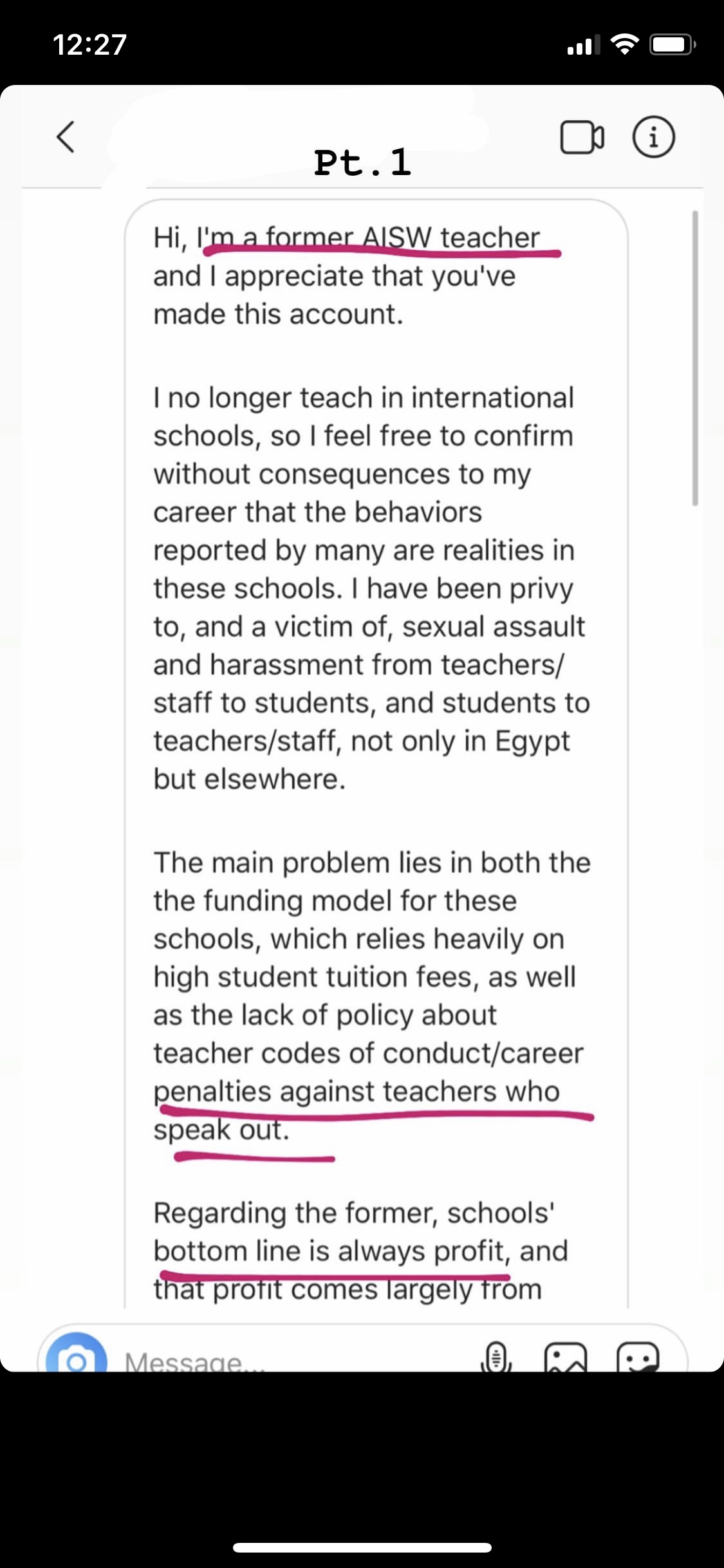
According to some of the stories, having a teacher “feel a girl up” or tell her about sexual fantasies they had about her was common on school grounds. Some even reported being spanked by teachers in high school. Such events left girls feeling humiliated, violated, and scared to the extent of having reoccurring nightmares and panic attacks.
One girl described how a teacher would hug girls and kiss their foreheads as well as reach into their jeans’ back-pockets with the excuse that he’s only grabbing their phone that is not allowed on campus. She also adds that he would talk to other boys about girls’ body parts while referring to girls as “mozzaz” or in other words “hot stuff”. Shockingly enough, this teacher is still working at the same school, after the board failed to take any action against him despite numerous complaints.
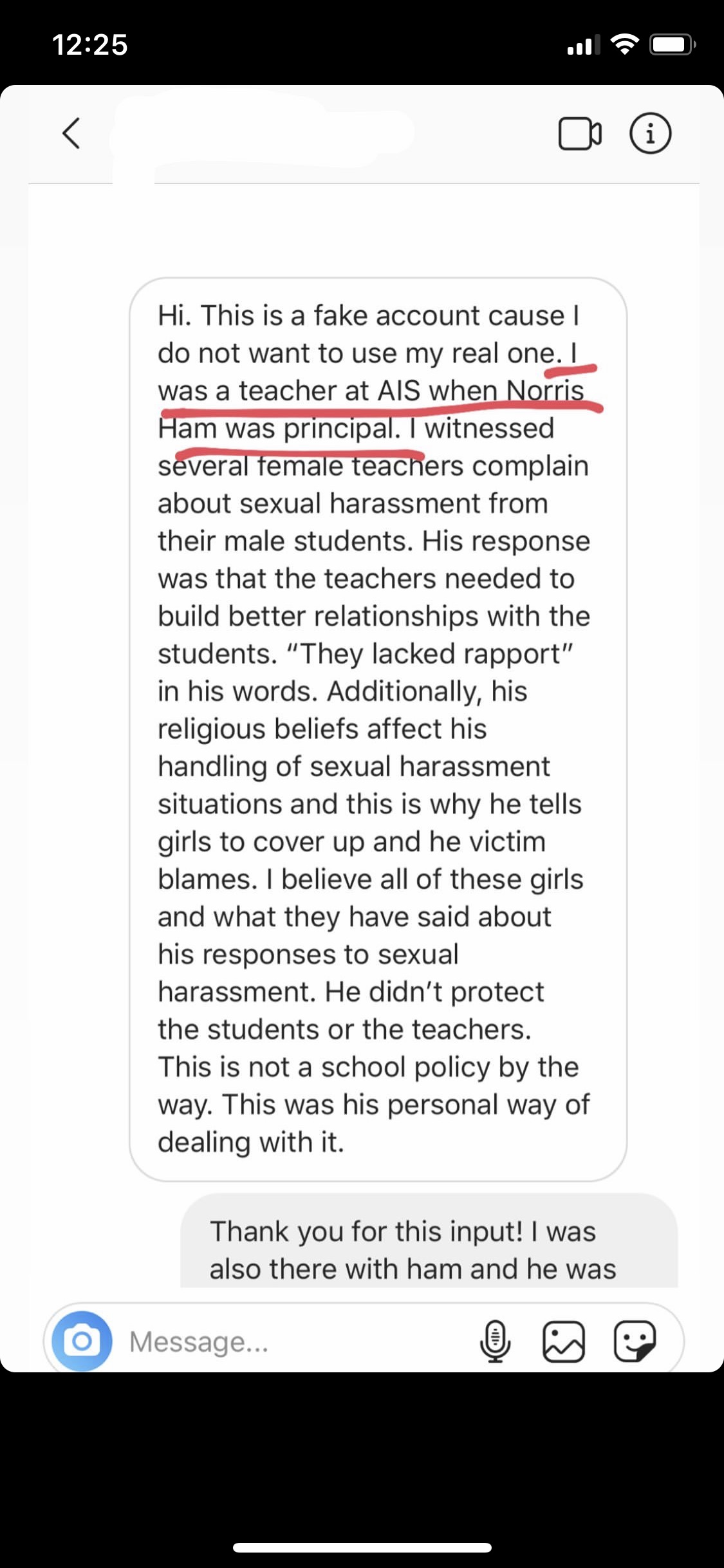
It was not only students who reported about some of the schools’ provocative negligence when it comes to harassment, teachers also confirmed this saying that school policies and contractual agreements prevented them from speaking out against such actions.
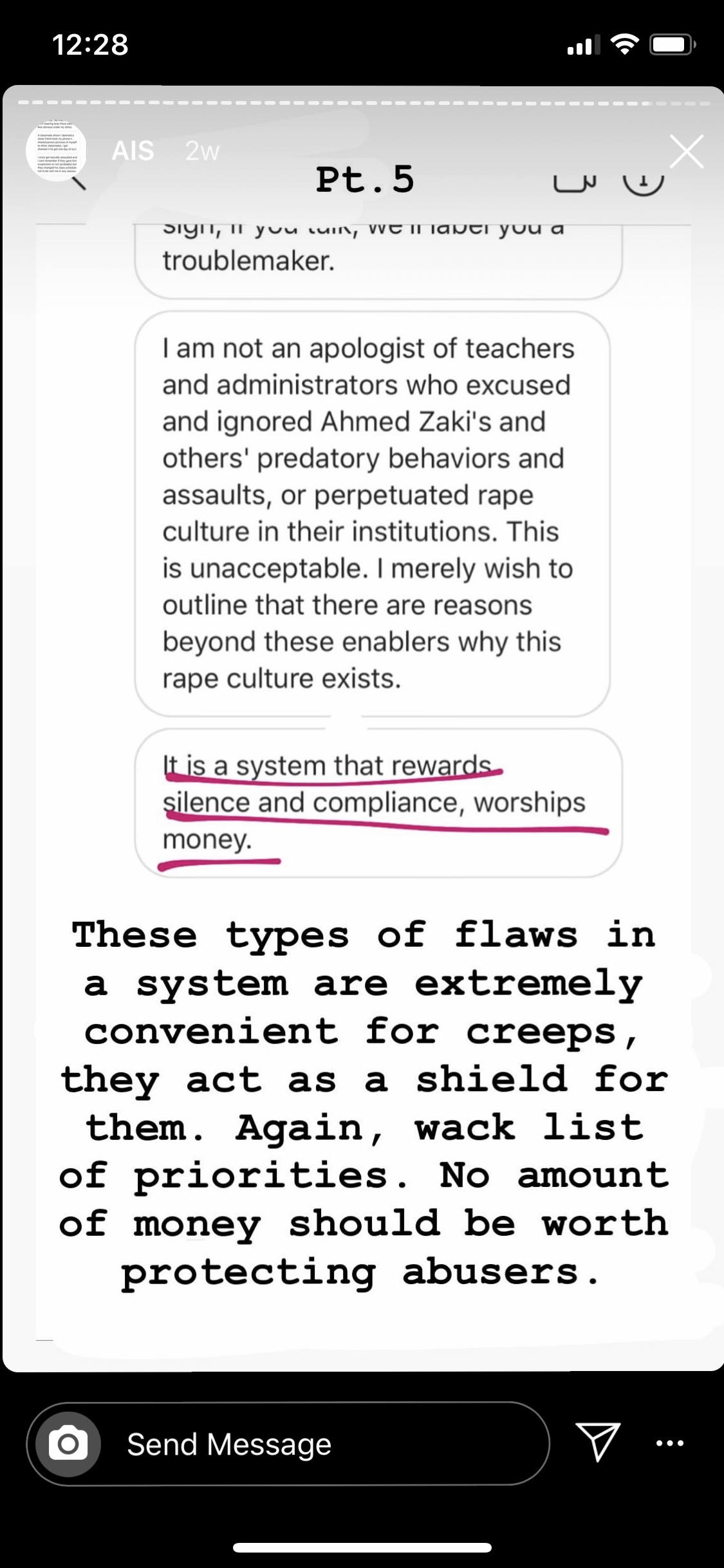

Harassment by Peers
Another form of harassment, which is often accompanied by severe bullying, is peer harassment.
Peer harassment often means blackmailing girls for sexual favors, sharing private pictures of them, or spreading sexual rumors about them and it’s usually done by a dating or ex-dating partner. According to many, boys would have folders of nude pictures of their female classmates which they would share with friends or use as blackmail. Girls who were exposed to this clearly had their privacy and reputation severely provoked.
School no longer became a safe environment for them, as being labeled as a whore or being verbally and physically assaulted turned into a daily routine.

One victim described the time after a partner shared a private picture of her as the worst chapter of her life. She recounted being pushed off the stairs by strangers and having to hide away in bathrooms during period breaks to avoid being verbally or physically assaulted. All of this was also accompanied by panic attacks, nightmares, and sleepless nights.
She did not even find support at home, as her family refused to let her switch schools, saying that she had to deal with the consequences of her dating choices. At 14 years old, this girl had to face humiliation, rejection, harassment, and abuse all by herself with absolutely no support.
The effects were dreadful on her mental state, as she tried to kill herself more than once and continues to have suicidal thoughts until today. Even though she was thankfully able to start a new and happy life after graduating, she is still frightened that her ‘past’ would catch up with her and ruin her chances of being accepted in her new community far away from school.
Another way some girls were harassed, was by an ex telling intimate details of their relationship to groups of friends after they break up. Ironically, the perpetrators, in this case, the dating or ex-dating partner, are usually rather rewarded for this type of behavior by their friends. The community in schools praises boys for committing the same actions they slut-shame a girl for – to the point that in order to become popular, it has become common for boys to share or make up sexual stories about their (ex) girlfriends.
Even when such incidents are reported to the school board, in some cases boys would only get a “day off” or receive no punishment at all.
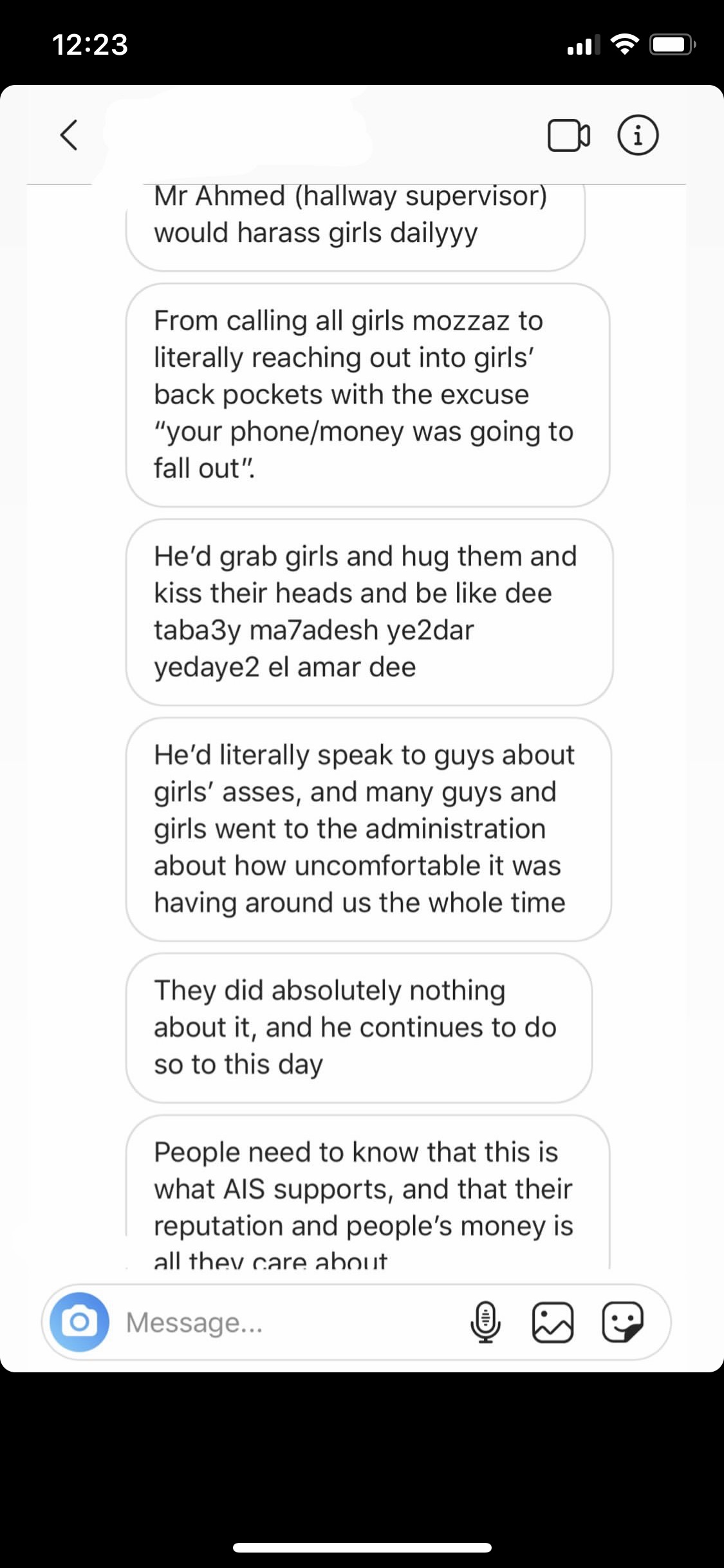
Discrimination
Apart from the appalling stories about direct altercations with harassment, the remarks that were made about how girls were treated by school boards and teaching staff in general also point to a community that would foster sexual harassment. One student shared that during an MUN event at her school, where girls showed up dressed in formal clothing like knee-length dresses and pencil skirts or leggings a teacher called them out by saying that “MUN is not an excuse to dress like a whore”.
A principal also claimed that such clothing would ‘distract boys’ and is not considered appropriate for our culture. Another girl also pointed out that she was called to the principal’s office for wearing jeans with fake rips because “the idea of fake rips is sexualizing and tempting”.
This overwhelming concern by the board was not extended when the school became a place where sexual jokes and comments as well as unwanted touching and grabbing became normalized. It was also not extended to girls who were described as overly dramatic when reporting uncomfortable incidents with a classmate or a teacher.
The school also failed to show the same level of concern when boys would watch porn in class or share private pictures of girls, which they got from their phones without their consent.
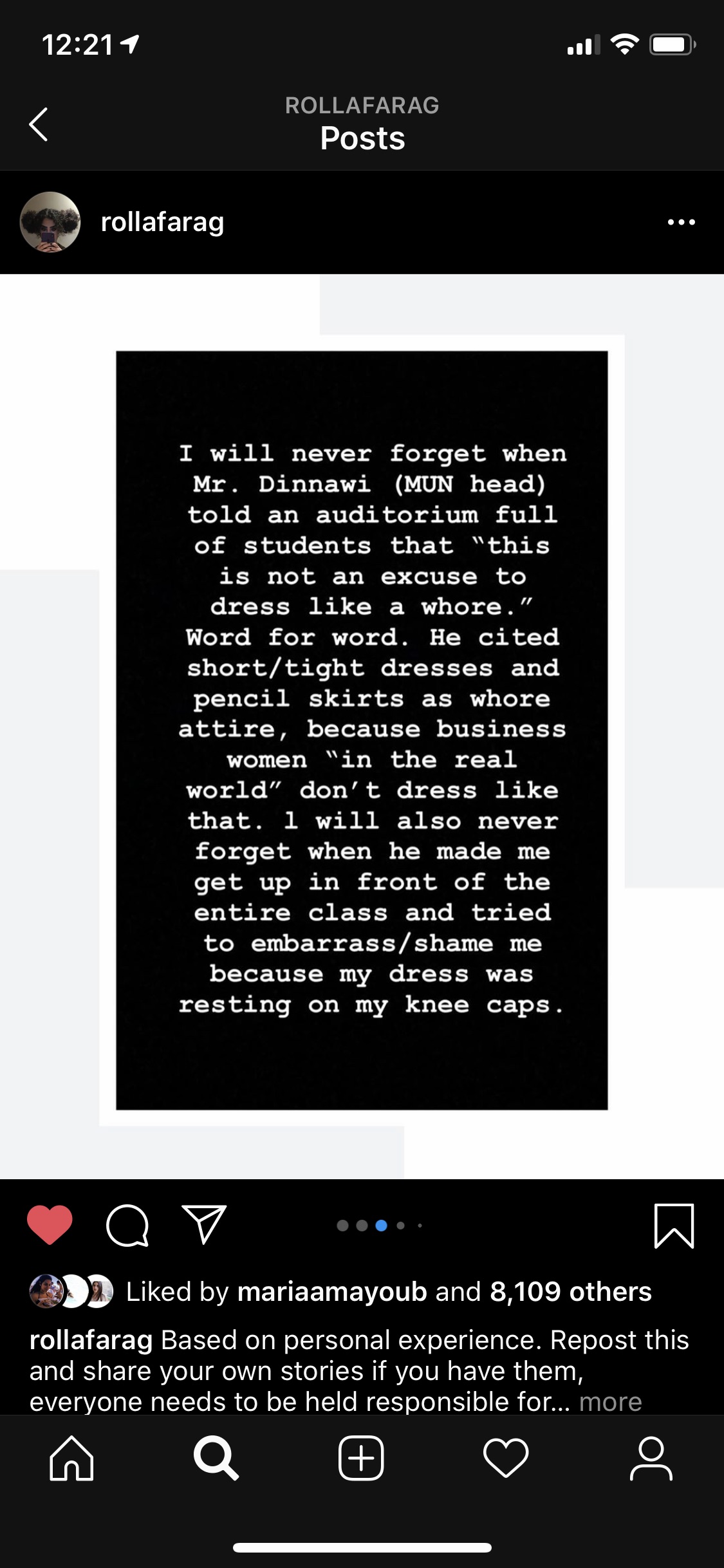
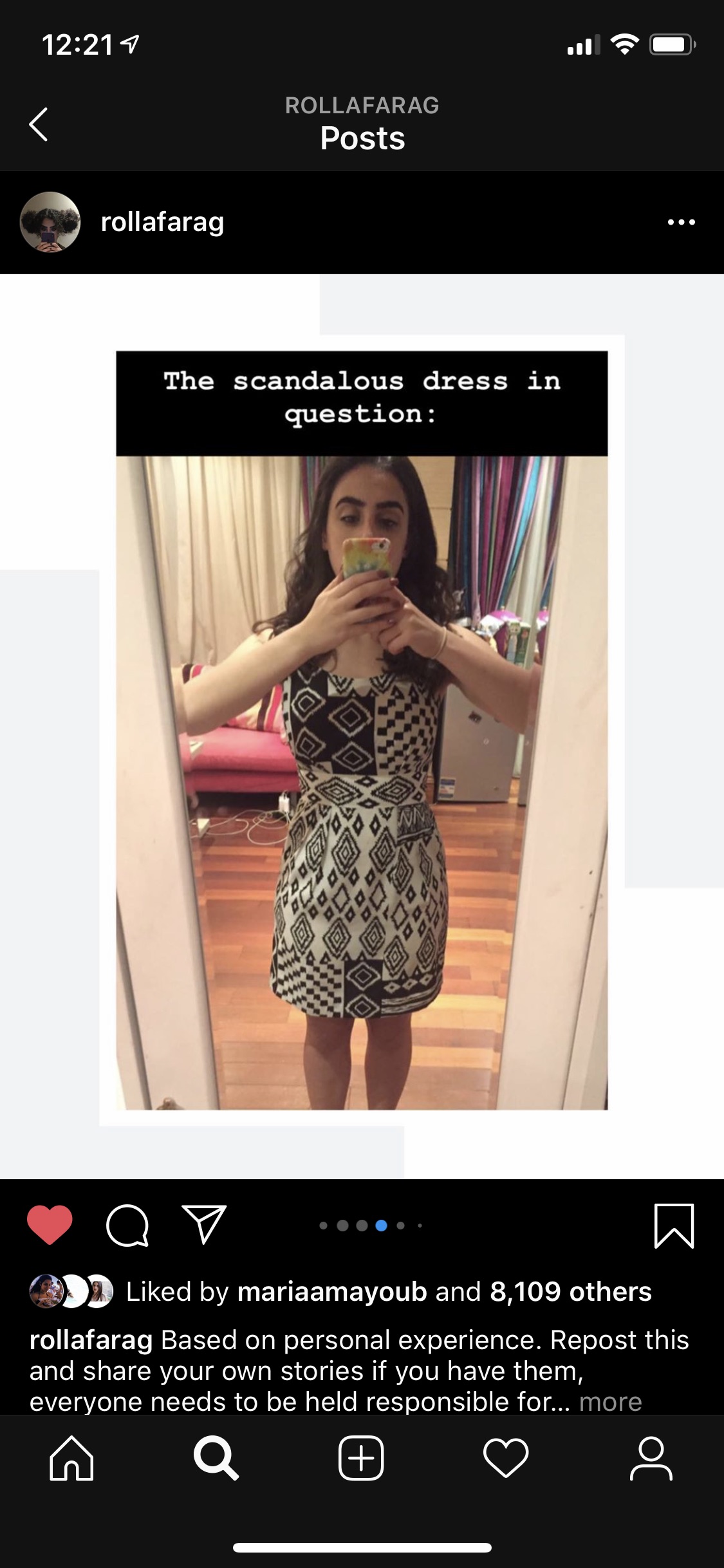
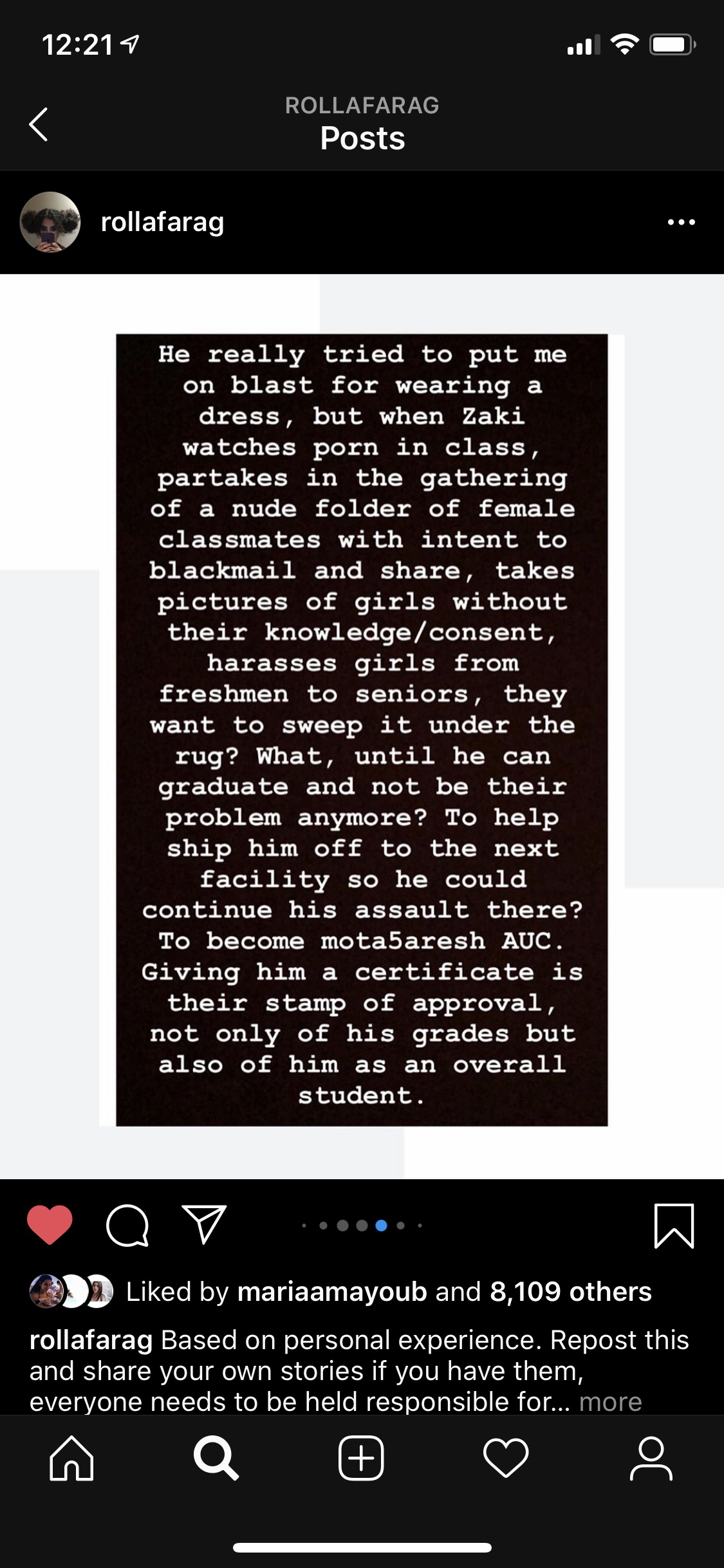
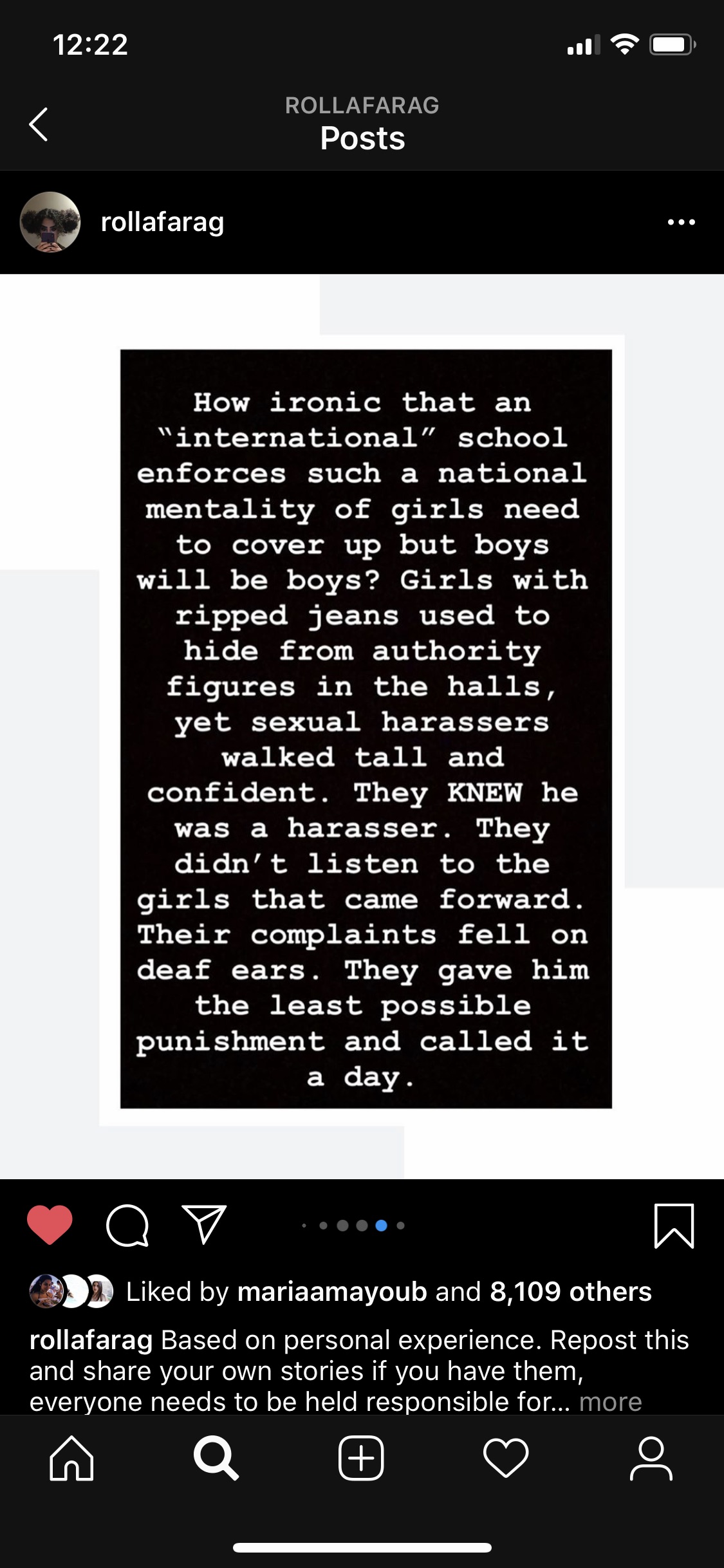
Sexual harassment from an ethical approach is described as “a sign of the failure of existing organizations to instil ethical coherence and integrity in their members”.
Knowing that Egypt’s finest private schools have failed to provide students with a safe environment, where no girl, or boy, could fall as a victim of sexual harassment, bullying or discrimination is truly alarming on so many levels.
Change is Needed Now.
At the end of the day, it is for the safer community and moderate upbringing that families primarily decide to pay a big bulk of money to send their kids to such schools. If the mindset of blaming girls’ dress-code for sexual harassment is rooted in such institutions, can we even begin to imagine what it looks like in other schools that are more exposed to cultural stigmas related to sexual harassment? Mac Kinnon described sexual harassment as an abuse of power, therefore it is the school’s primary responsibility to not give anyone the indication that they’re powerful enough to harass another person.
In other words, evidence from several schools point to a clear error in the dealing with sexual harassment by school systems that urgently needs fixing. The arbitrary and reactive manner that schools have been adopting when it comes to this issues has led to serious mental trauma for many students and also bred a culture of harassment. The Ministry of Education in Egypt is called the Ministry of Upbringing and Education in Arabic, meaning that the correct upbringing of the youth is rated as more important than their actual education. It’s about time the ministry lives up to its own name and starts proactively fighting sexual harassment.
⚡️If you like this article, subscribe here to our EMPWR Guide and be first to receive all our latest articles surrounding mental health in the MENA Region, directly to your inbox, every Sunday.
Be sure to check out and join our global conversation around mental health on EMPWR’s Facebook Community Group!
💭Freelance Submissions & Art/Poetry are accepted here (All articles must comply with EMPWR’s writing guidelines for consideration.)









Comments are closed.